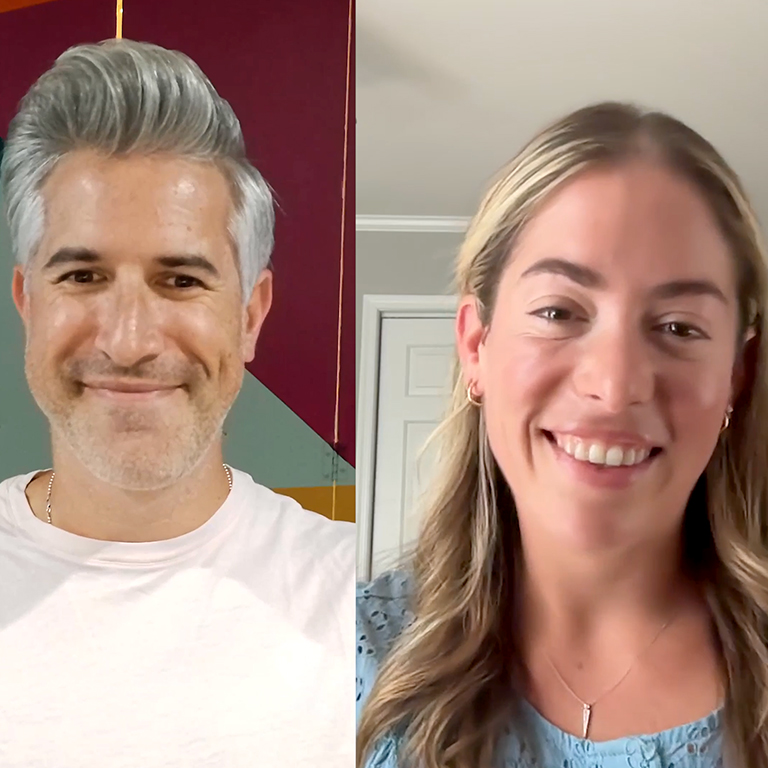Want to know how financial experts get their money in shape for the new year — so you can too?
On the latest episode of our podcast, Common Cents on the Prairie™, First National Wealth Management’s very own Adam Cox, Kyle Cipperley, and Don Rahn share their best year-end financial planning tips to help you take your finances to the next level.
From what to do with your annual raise to reviewing your benefits, here’s what they had to say.
1. Update your balance sheet.
“It’s probably going to come as a surprise to people to hear that I only look at my (investment) accounts once a year,” said Adam, Chief Wealth Management Officer at First National Wealth Management, “and it’s the end of the year.”
His reasoning: he’s more concerned about behavior than outcomes.
“As I get closer to retirement, that will probably change,” Adam added. “I’ll probably keep a closer eye on things.”
When looking at your balance sheet as part of your year-end financial planning, Adam says, focus on the things you can control. For him, that’s the savings rate and whether it was enough to meet his long-term goals.
2. Rebalance your portfolio.
“Especially in a year like this where the stock market’s gone up dramatically, our clients’ portfolios have gone up a lot,” said Kyle, Investments Manager at First National Wealth Management.

When working with clients to rebalance at the end of the year, “one thing we do is look at where their stocks are as a percentage of their assets compared to where we want it to be.”
This year, Kyle says, they’re selling down stocks to get back to target, getting risk under control, and investing that money in bonds or leaving it in cash.
3. Take advantage of the gift tax exclusion.
“With the gift tax exclusion amount, the annual amount is $18,000 for 2024, and that’s going up to $19,000 for 2025,” said Don, Wealth Advisory Manager at First National Wealth Management. “So usually, my clients are doing that at the beginning of the year or the end of the year.”
For example, a husband and wife could both give up to $18,000 to each of their children or grandchildren without anyone incurring tax.
“A lot of times they’re doing that just to be generous, to help their family members out,” Don said.
It can also be an effective wealth transfer strategy for high-net-worth clients looking to reduce their estate.
“What’s interesting about that strategy, too,” Adam said, “is a lot of high-net-worth couples are also using those gifts as a test to see how the recipients handle the gift.”
He added, “If you happen to be getting one of these gifts, pay attention to it.”
4. Start doing cash planning for the next year.
“One of the things I think is helpful to do this time of year, is you start planning out what the next year of spending looks like and if you think there are any big expenses coming down the pipe,” Adam said.
Some of the things Adam is planning for in 2025, for example, are a home remodel and his first teenage driver.
“I know at some point she’s going to want a car,” Adam said, “and so I start thinking about, all right, how much do those things cost?”

He then makes sure that the money is not exposed to any market risk, “because the last thing I want to do is know in my mind how much something’s going to cost, I know when I’m going to have to spend the money, and then that money is exposed to a downturn in the market.”
Personally, Adam tries to take that money off the table approximately one year before the planned expense to avoid any potential risk.
5. Try tax-loss harvesting.
“It’s a term the investment industry came up with because we’re jealous of farmers,” Kyle quipped. “What you do is you look at your clients’ portfolios and you see, are there any securities that we’ve purchased that are in a loss?”
If you do have something that’s down, you can then sell it and realize a loss.
“That’s something that doesn’t sound like it’s a great deal,” Kyle said, “but what you can do, then, is you can use that on your tax return next year to offset any other gains that you might have incurred, or you can offset up to $3,000 of your income from selling losses.”
Although you have to wait 31 days to repurchase the asset you just sold, you can immediately purchase something similar to it so that you’re not out of the market.
6. Make sure you take your required minimum distributions.
“As we’re approaching the end of the year here, there’s a deadline for the required minimum distribution,” Don said. “That’s the required amount that a client needs to take from their traditional IRA or 401(k) pre-tax retirement accounts.”
For example, someone who is 73 years old and has $1 million in their 401(k) would have to take out $36,500 before the December 31 deadline.
Failure to do so would result in a penalty of 25% by the IRS.
“That’s why a lot of our clients…consolidate their 401(k)s and IRAs,” Don said, “so that there’s one account to keep track of.”
7. Think about how to handle your annual raise.
“I like to say, maybe don’t spend all of your raise — to the extent possible,” Adam said.
For example, if you were to get a 4% raise, Adam recommends putting at least 1%, if not 2%, into your retirement savings.
“The nice thing about doing that right away is you can’t miss something you never had,” he said.
8. Review your benefits.
“You may be converting from a traditional plan to a high-deductible plan,” Don said. “If you are, you want to look at the health savings account to make sure that you get, maybe, your company’s match.”

Also, if you know that you have surgeries coming up next year, Don recommends putting some extra dollars away in that health savings account.
For those with a traditional health plan and a flexible savings account, he suggests checking your balance before the end of the year.
“Different companies have different rules,” he said. “There’s some use-it-or-lose-it, where you might leave dollars in there.”
If you do find that you have money in your flexible savings account before the end of the year, consider what you might be able to spend that on.
“If you need new prescription glasses,” Don said, “it might be a time to go do that.”
For more tips from our financial experts on how to get your money in shape for 2025, watch the full episode of Common Cents on the Prairie, “Holiday Movies and Year-End Planning Tips,” below or listen on your favorite streaming app.
And if you want to talk to an expert about your year-end planning or New Year’s resolutions, reach out to Adam and the team at First National Wealth Management; we’d be happy to have a conversation!
Any comments, insights, or strategies discussed in this article are intended to be general in nature and, therefore, may not be suitable for you and your situation, whatever that may be. Before acting on anything written here, please consult with your attorney, CPA, and/or your financial advisor.




